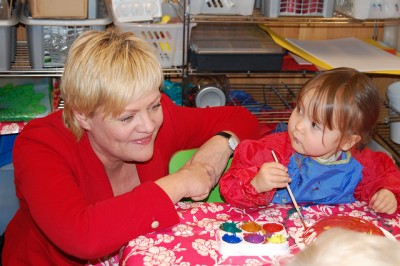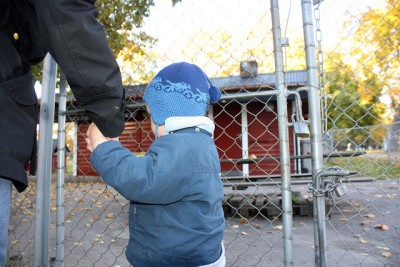Dangerous playground equipment, poor sanitation, babies waiting in a queue for diaper-changing and even the presence of rats and mildew: Oslo-based newspaper VG revealed on Monday that such conditions have been found at various day care centers around Norway. VG’s report set off an immediate uproar over the quality and control of the state-backed but community-run institutions.

After an extensive investigation into how Norwegian day care centers are monitored, VG concluded that fully half of the country’s 6,000 state-supported day care centers have broken laws related to health and safety within the past three years. That’s disturbing news for parents in Norway who deliver around 300,000 children to the day care centers called barnehager every day.
The report comes in the wake of ongoing debate in Norwegian media that’s also going on all over the world regarding the practice of placing children in day care from an early age. In Norway, it’s become expected that both parents work outside the home and that children start attending barnehager from the age of one, or right after the parents’ combined periods of maternity and paternity leave are over.
VG examined around 4,500 condition reports written by local authorities at around 3,000 day care centers around the country. The information found and collected in VG’s new database called barnehagebasen (external link, in Norwegian) is related directly to the welfare of the children. VG reported that around 3,000 other day care centers have not been subject to monitoring by the authorities in 2010, 2011 or 2012.

According to state law, the local government entities in Norway called kommuner are required to monitor the day care centers they also are required to run. That system of self-regulation, politicians were suddenly pointing out on Monday, presents a problem in itself.
Moreover, the state law doesn’t specifiy how often day care centers should be examined or what methods of inspection should be used. Guidelines from the state ministry of education ultimately in charge of the day care centers state that tilsyn (inspections) should be “systematic,” and calls it “an important part of the kommunen’s responsibility to ensure barnehager of high quality.” Local health and environmental authorities are supposed to be involved, but VG revealed that procedures vary widely around the Norway.
The biggest problems uncovered by the monitoring that has been done related to deficient hygiene and security along with concerns over staffing levels. VG reported that after reading and categorizing findings in the inspection reports from around 3,000 day care centers, more than half had violated either state laws or local regulations. The most common violations were sloppiness regarding hygiene, infection control and overall cleanliness of the physical plant; deficient safety regarding playing equipment or security routines; deficient pedagogic routines and violations of staffing requirements.
All told, VG uncovered 6,400 violations over the past three years. “The fact that one of two barnehager have broken the law is quite disturbing,” Jon Christian Nordrum of the University of Oslo, who proposed new day care laws last year, told VG. Law professor Jan Fridthjof Bernt at the University of Bergen agreed: “Children have a right to demand that we show care and responsibility for the environment we offer them. This is a political responsibility that these numbers show we haven’t taken seriously.”
It’s a responsibility shared by both state and local government, with local government having the most direct responsibility for running the day care centers. Education Minister Kristin Halvorsen of the Socialist Left party (SV) was catching much of the initial blame on Monday, though, not least because her party has pushed for full coverage of day care needs in Norway for years. She has relied on the local governments to carry out the administration, but some experts were saying there’s been too much emphasis on quantity of day care centers and not enough on their quality.
Halvorsen was agreeing on Monday that inspections should no longer be carried out by the local governments in charge of the day care centers, but rather by county authorities. Most opposition politicians agreed, while not missing the chance to criticize the left-center government coalition of which Halvorsen is a member. The political criticism was tempered, however, by the fact that in Oslo, for example, the local government is controlled by the Conservative Party, meaning the opposition must share responsibility for violations found.
Others, especially readers commenting on VG’s articles, contended that the actual violations found in the day care centers may not be so serious, and that similar conditions can be found in many Norwegian homes.
Views and News from Norway/Nina Berglund
Please support our news service. Readers in Norway can use our donor account. Our international readers can click on our “Donate” button:

